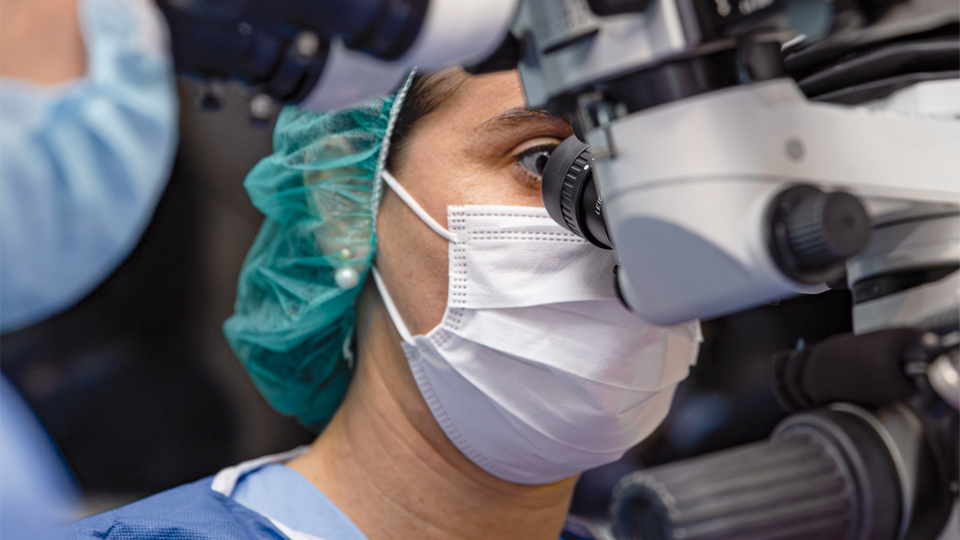Vitreoretinal complications in high myopia
09/01/2026

08/04/2024
What led you to study Medicine and specialize in Ophthalmology?
Since I was little I have been fascinated by the functioning of the human body and I was attracted by the idea of being able to work helping other people directly. During my degree I liked several subspecialties, although gynaecology and ophthalmology were my favorites. Since my mother is an ophthalmologist and she was always reading articles or books in her specialty, I guess they finally made an impact on my subconscious.
Why have you dedicated yourself to corneal, conjunctival and ocular surface pathologies, as well as cataract surgery?
Because I have been lucky enough to learn from great teachers who have been able to transmit to me their passion for the cornea. Furthermore, it is one of the most beautiful specialties since if we do a correct treatment, we manage to restore sight to patients, which is very rewarding on a medical and personal level.
How is your day? What do you like most about your profession?
Everyday life is an adventure. The good thing about our profession is that every day is different, with daily challenges that force us to constantly evolve. The best thing is to be able to deal directly with patients, establish a connection with them and be able to help them. It is also very enriching to be able to work with a multidisciplinary team that you trust in order to provide the best service.
Given the increasing prevalence of visual problems related to the use of electronic devices, what would you advise people about prevention and care of their eyes in the digital age?
I believe that people are increasingly aware of the importance of vision in their daily lives. To preserve good vision, we must avoid abusing devices, optimize lighting and humidity conditions in work spaces, maintain good hygiene and ocular lubrication, in addition to making periodic visits to verify that our eyes are in good condition.
What are the most exciting developments in your area of expertise in recent years?
It is exciting how quickly gene therapies and cell cultures are advancing in recent years. Soon our patients will be able to benefit from new treatments to regenerate the ocular surface or prevent the progression of diseases that until now were incurable.
At the diagnostic level there have also been great advances with the implementation of new technologies that allow us to study anatomical structures and their functionality in greater detail. This helps us better guide the problem and choose the best treatment.
With such an absorbing job, what do you do to disconnect?
In my case, the key to giving my best is maintaining a good balance between my work and family life. Mens sana in corpore sano.